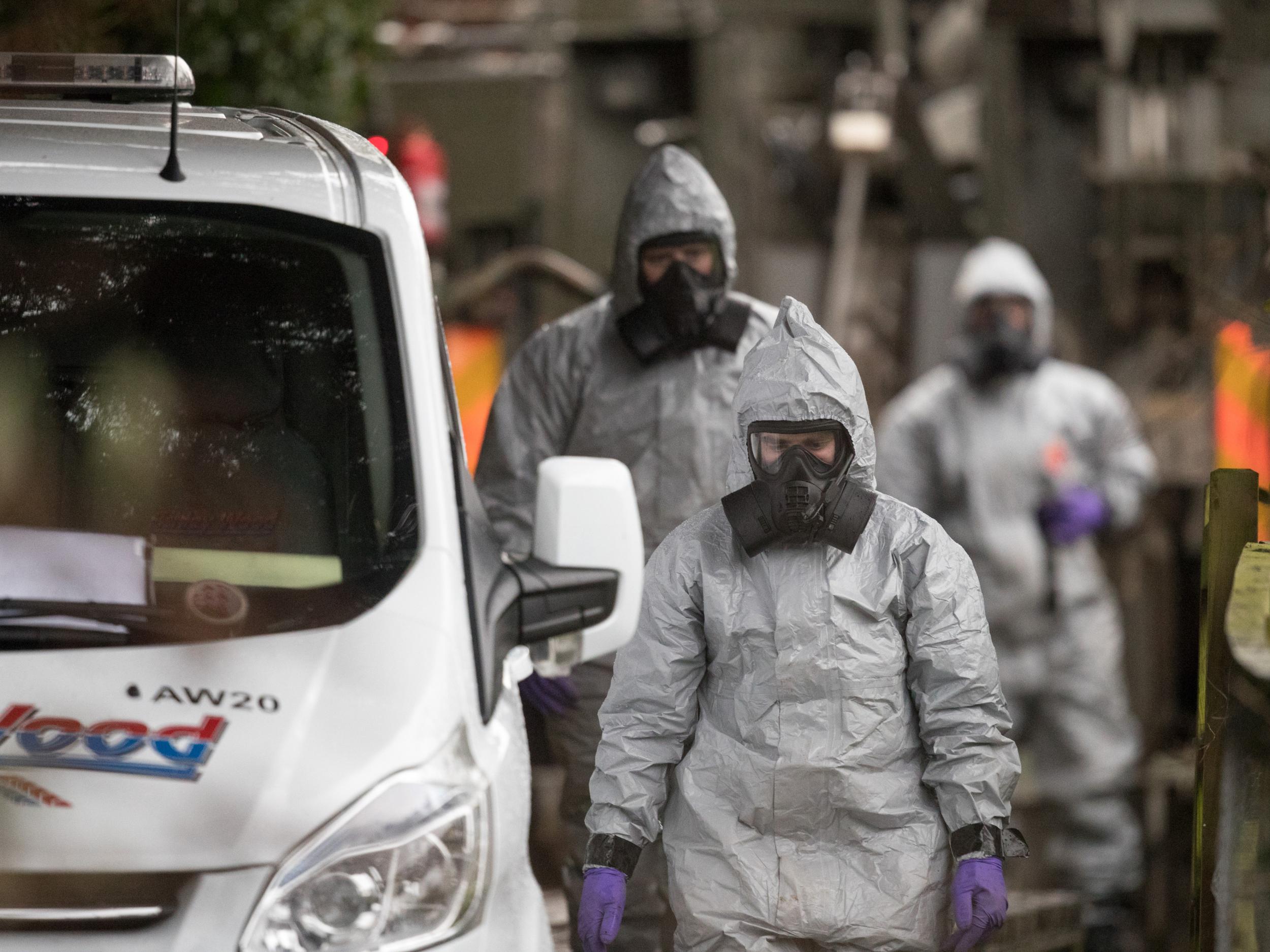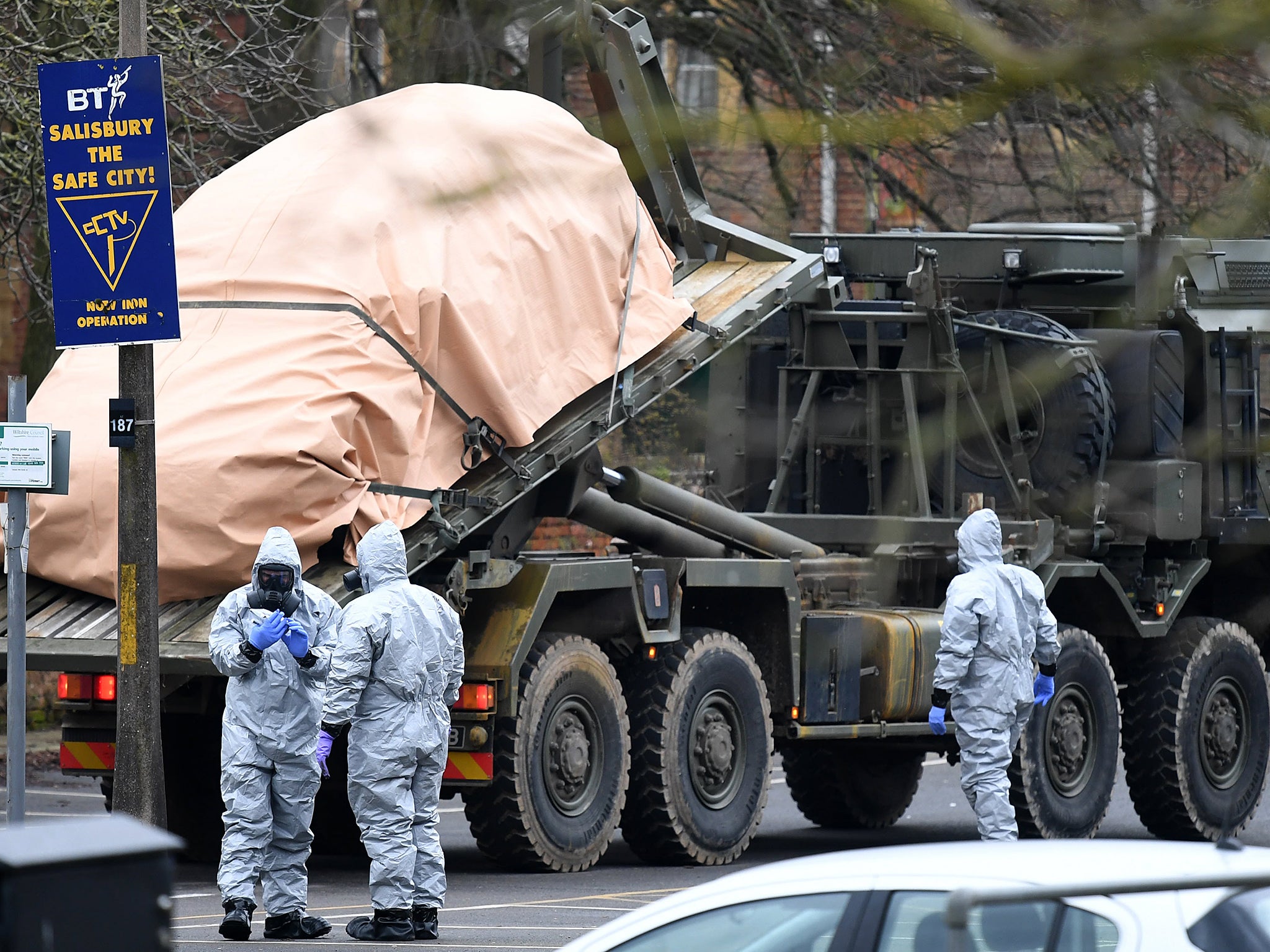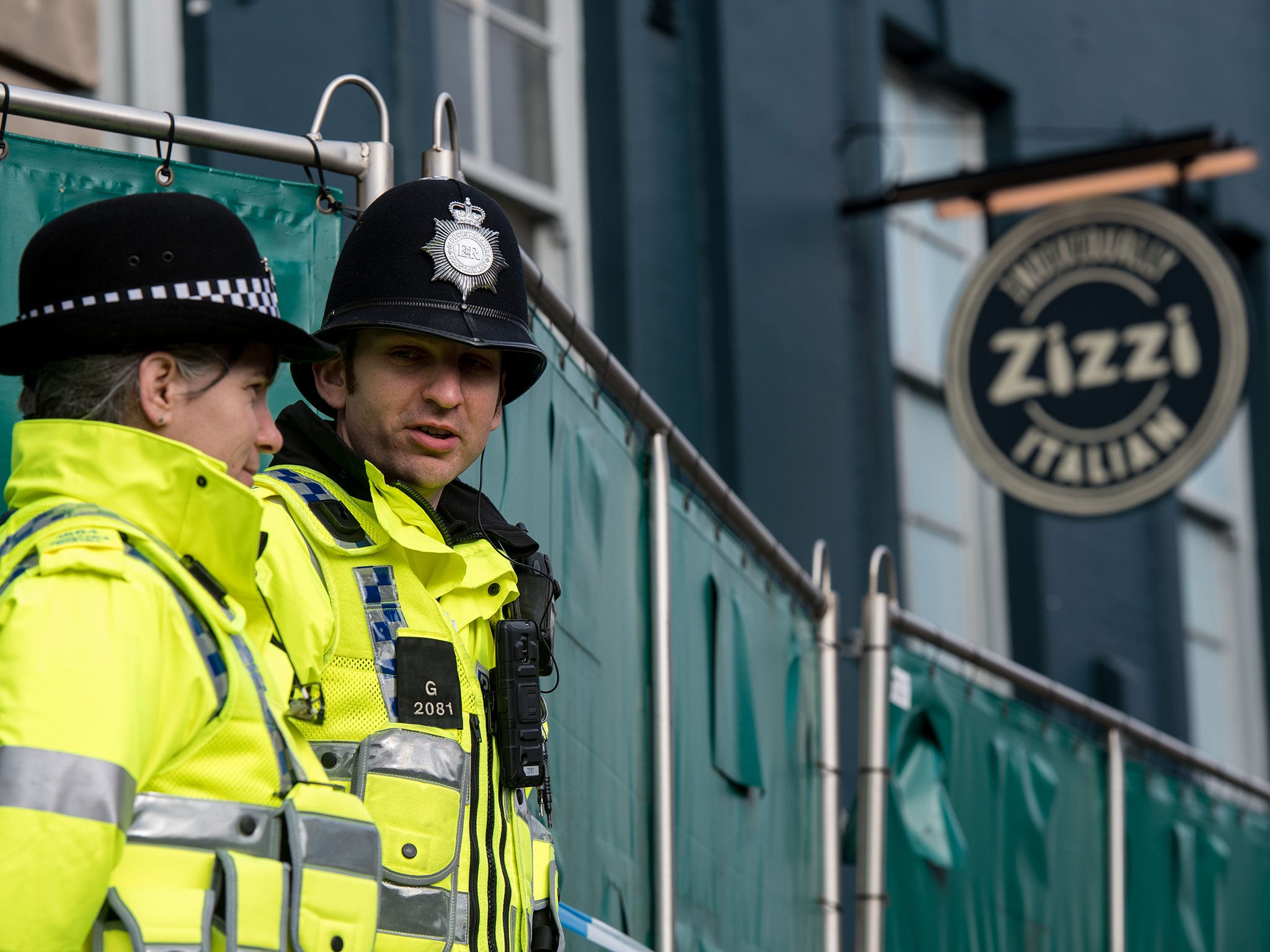Russia tells May it is 'not to blame' for nerve agent poisoning of former spy Sergei Skripal
Moscow demands access to nerve agent sample
Russia has told Theresa May it “is not to blame” for the nerve agent attack on former spy Sergei Skripal.
Sergei Lavrov, the country’s foreign minister, said Moscow had demanded access to samples of the nerve agent used to poison Mr Skripal and his daughter in Salisbury.
Mr Lavrov said the British government had refused to provide Moscow access to materials and samples related to the case, which he called a violation of the Chemical Weapons Convention.
Moscow was willing to cooperate with the probe but suggested the UK would be “better off” complying with its international obligations “before putting forward ultimatums,” Mr Lavrov added.
Russian news agencies reported that the foreign ministry had summoned the British ambassador in Moscow over the poisoning accusations.
On Monday, Ms May said Mr Skripal and his daughter, Yulia, had been poisoned with a military-grade nerve agent known as Novichok, which had been developed in the Soviet Union.
The Prime Minister said Russia has until the end of Tuesday to explain how the substance ended up in Britain, otherwise the attack would be interpreted as an act of military aggression.
Officials said Ms May was reviewing a range of economic and diplomatic measures in retaliation for the assault.
The British government will have understood that the Kremlin was unlikely to respond to Ms May’s ultimatum positively. Many in Moscow are already bracing themselves for that they see as an inevitable tightening of sanctions.
Ms May told her regular weekly Cabinet meeting at 10 Downing Street there was ”no doubt of the severity of what had taken place in Salisbury, which was a reckless, indiscriminate and despicable act.”
She confirmed she will chair a meeting of the National Security Council on Wednesday to discuss the Russian response and will then inform the House of commons of any measures to be taken.
Responding to Mr Lavrov’s complaint the UK had not provided samples of the nerve agent, Ms May’s official spokesman said: ”The UK complies fully with all its obligations under the chemical weapons convention.
“Under the chemical weapons convention states have the mechanism to consult, but there is no requirement to do so.”
The police and MI5 will look into allegations of Russian state involvement in a string of deaths on UK soil, the Government announced.
The announcement by the Home Secretary, Amber Rudd, followed reports claiming US intelligence sources suspect as many as 14 people may have been assassinated in Britain by Russia’s security services or mafia groups.

Sergei Stepashin, Vladimir Putin’s predecessor as FSB director and Prime Minister, also called for British authorities to hand over evidence.
“We have the relevant agreements to investigate this together,” he told the Interfax news agency.
Mr Stepashin said British security services may have been complicit in the poisoning — and were using it to undermine Russia ahead of Sunday’s presidential elections: “It seems obvious to me that this might be the primitive work of English security services. Tell me who needs this traitor in Russia?”
There could be another reason apart from elections, he added: “The World Cup is about to take start and the English hate us for the fact the competition is taking place in our country.”
Earlier in the day, Konstantin Kosachyov, head of the Committee for Foreign Affairs in the Russian upper house described British allegations as “maniacal.” Britain was well versed in blaming all kinds of “mortal sins” on Russia, he wrote on Facebook.
“Russia is being asked to justify itself even without evidence,” he said. “In queen of courts of Britain, this degradation is complete: the total presumption of guilt, when the neither court and nor prosecutor are asked to prove the case, but the accused.”

On Tuesday, Boris Johnson said Britain was talking to its international partners about the situation.
“I’ve been encouraged by the willingness of our friends to show support and solidarity,” the Foreign Secretary said.
“I think in particular from President [Emmanuel] Macron of France, I talked to Sigmar Gabriel my German counterpart, and from Washington where Rex Tillerson last night made it absolutely clear that he sees this as part of a pattern of disruptive behaviour... malign behaviour by Russia... the support for the reckless use of chemical weapons which stretches from Syria now to the streets of Salisbury.”
Mr Tillerson, the US Secretary of State, said Russia’s actions would “certainly trigger a response.”
He said it was “almost beyond comprehension” a government would use such a dangerous substance in a public place.

The chief of the world’s chemical weapons watchdog said those responsible “must be held accountable.”
Ahmet Uzumcu said Boris Johnson had called him on Monday evening to inform him of the results.
In a speech to the Executive Council of the Organisation for the Prohibition of Chemical Weapons, Mr Uzumcu said: ”It is extremely worrying that chemical agents are still being used to harm people. Those found responsible for this use must be held accountable for their actions.
Britain’s representative to the watchdog told the watchdog’s council it is “highly likely” Russia was involved in the attack “by failure to control its own materials or by design.”
Mr Wilson “the first offensive use of a nerve agent of any sort on European territory since World War II.
He added: ”This attempted murder, using a weapons-grade nerve agent in a British city, was not just a crime against the Skripals. It was an indiscriminate and reckless act against the UK, which put the lives of innocent civilians at risk.”
Mr Skripal and his 33-year-old daughter remain in critical condition.